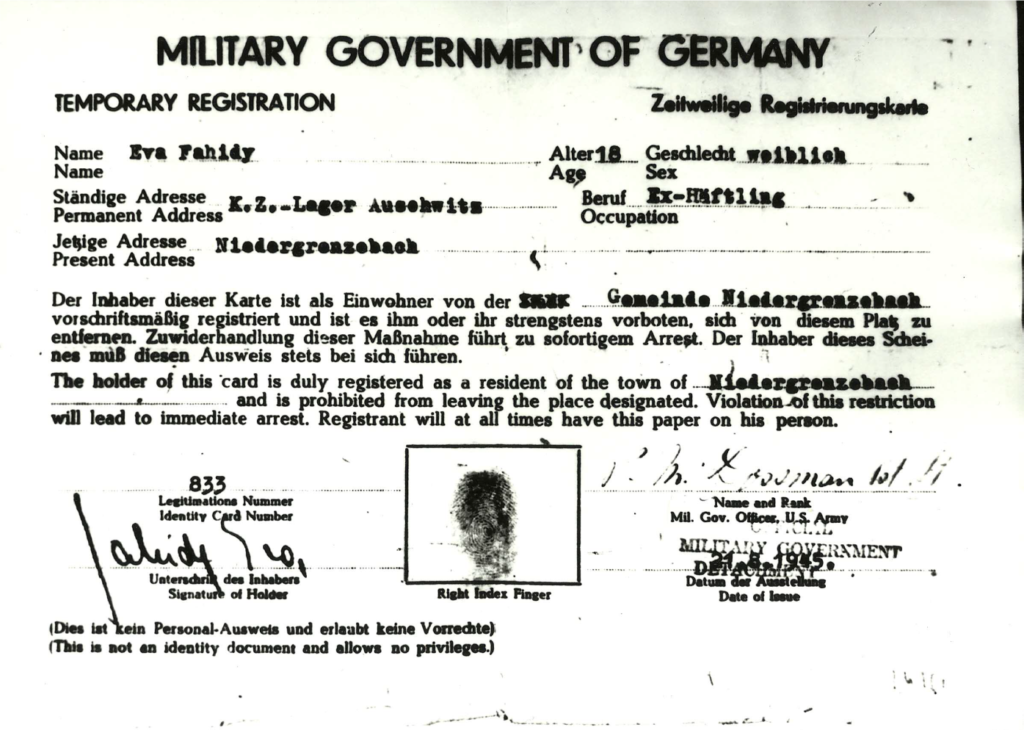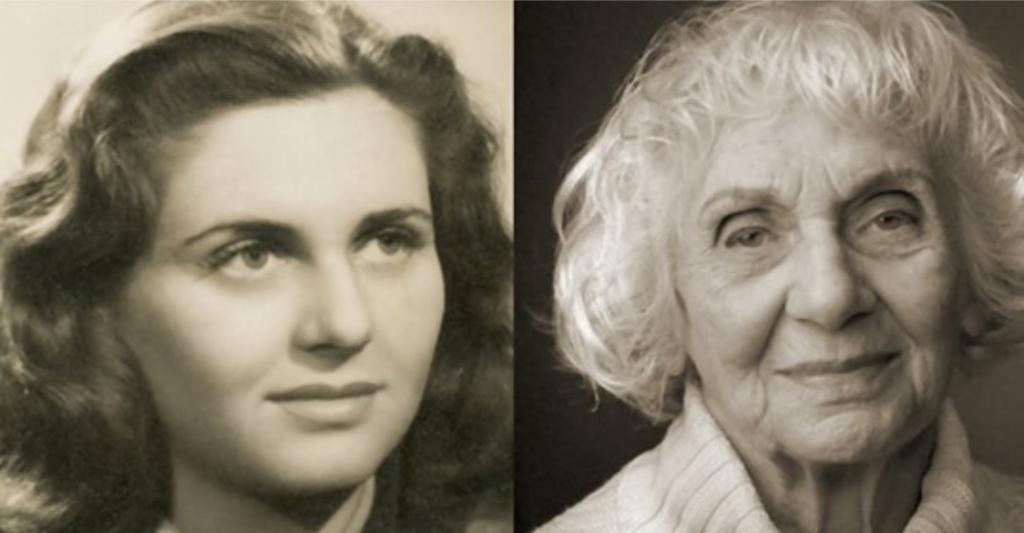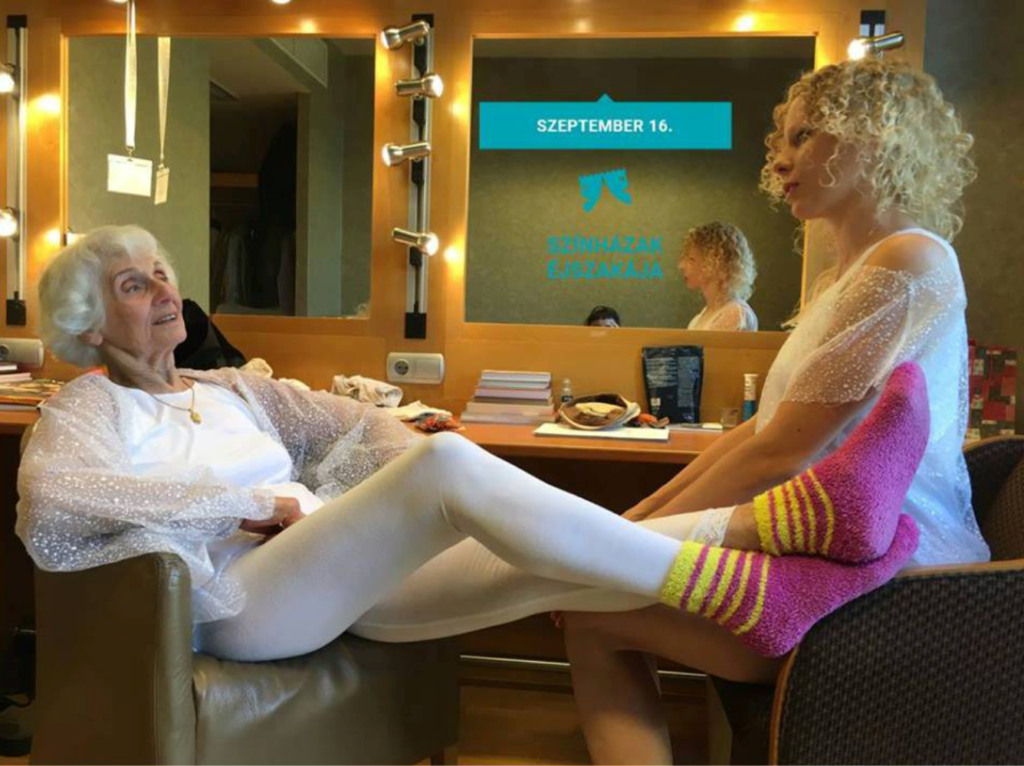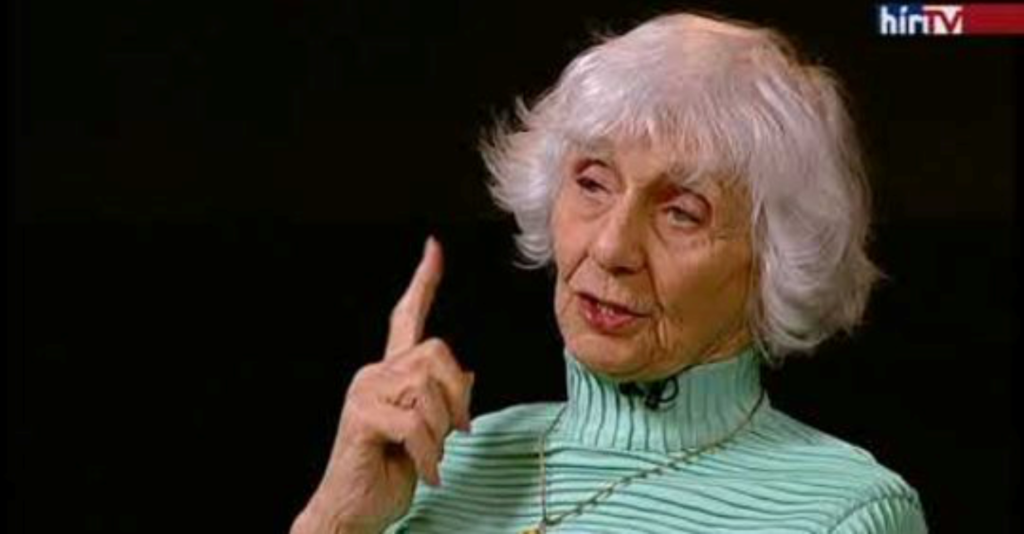THE QUASI IDENTITY CARD / Éva Fahidi
Authority: MILITARY GOVERNMENT OF GERMANY
According to the text, this is not an identity card – but what is it then?
It claims that my occupation is: EX HÄFTLING = FORMER CONVICT
My permanent address: KZ-LAGER, AUSCHWITZ = DEATH CAMP
My current address: NIEDERGRENZEBACH
The bilingual document also states that “The holder of this card is duly registered as a resident of the town Niedergrenzebach and is prohibited from leaving the place designated. Violation of this restriction will lead to immediate arrest. Registrant will at all times have this paper on his person.” It also adds that: “This is not an identity document and allows no privileges.”
21 August 1945
Signature: MAJOR DOWNING
Does this paper want to refer to my identity? The lack of empathy from the allied authority producing the document is astonishing. Still, this is the paper I carry with me on the way back home, sitting in a box-car of a train from Germany to Debrecen on my 20th birthday, listening to the music of the wheels, without any birthday congratulations. There is not a single soul upon the Earth who would be aware of me turning 20 that very day!
I have bad premonitions when I arrive – on a lorry – at the bombed-out station in Debrecen, and I run like a madwoman to my uncle’s nearby house. The house is replaced by a bomb crater. I run on and I realize only when I reach my neighbour’s house that I have passed my own home without recognizing it. The neighbour’s house looks like what it always used to, but the one before it – it cannot be mine!
My house has a nice, well-kept garden, the walls are covered with fine, sweet grapes, we used to climb up and down its columns while playing cops and robbers. But this unfamiliar house, which stands in the place of our home, looks completely strange, abandoned, dirty, with a heap of junk in the middle – none of us can be here. The gate looks familiar, I see the bell where it always used to be, I know its sound when pressed, I know I will need to press it – anxiously, I press it, and a foreign monster appears at the door. Excitedly, I start to explain that this is my house, I have come home, please let me in.
“You cannot come in” he answers, “there is no place for you, there are so many of us here. Go wherever you wish!”





